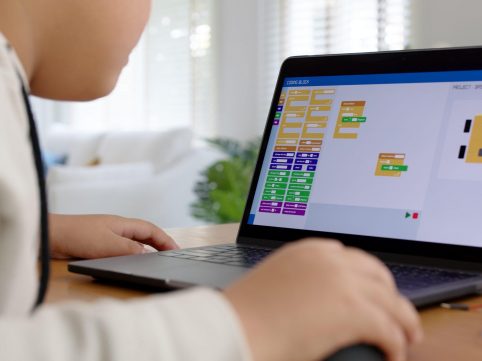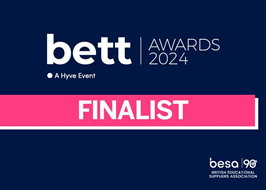"A key change is the proposal that the subject content allows for visual programming languages to be used in meeting the programming requirements, rather than this being limited to textual programming languages only. Visual languages now offer equivalent functionality to textual languages, and the underpinning knowledge, understanding and skills of programming is the same for both language types. The inclusion of visual languages supports longevity in the content, as all programming languages continue to evolve. It will be for awarding organisations to decide if they wish to offer the GCSE in a textual or visual language, or both.
The opportunity for use of visual languages at GCSE will make it different to the A level, where the use of textual languages is currently the only option. The Department’s view is that students completing the computer science GCSE will have the underpinning programming knowledge, understanding and skills that will enable them to move sufficiently easily onto A level, or equivalent study, based on textual languages."
Source: https://shorturl.at/BbxPL
So what does all this mean?
Computer Science GCSE is one of the most demanding qualifications. At GCSE, students typically get half a grade lower than in their other subjects, so a little realignment is probably not unreasonable. That said, when comparing past papers from current GCSEs to the old O level from the mid 1980s, it is obvious that some of the content from A levels today such as floating point numbers used to be included in the old O level, and this provokes the argument that exams in Computer Science today are already easier than they once were.
The proposed change to include block-based programming instead of a textual language could make computer science more accessible to a wider range of students, and perhaps that is not a bad thing. Does every child really need to learn how to write high-level code? Is it better to teach and apply computational thinking? There are examples of where block-based programming is used in real situations. For example, with Unity in games development etc.
This could also be the opening of the door to more interactive online exams where students are given systems to explore by pushing buttons, seeing what happens and then changing the flowcharts or visual code blocks to make the system work properly. Think car dashboard notifications when doors are opened etc.
However, this could have three impacts.
- There might be a mass exodus to perceived "easier" courses, with the risk that this might increase intellectual poverty with only grammar and independent schools offering increased challenge.
- A level will be back to the old days where we had to teach the basics of text-based programming, or at least not assume it has been taught to all students. That might be a step backwards as students are actually less prepared for future study.
- The learning journey from Key Stage 2 to Key Stage 3 onto Key Stage 4 now makes little sense in England. How can you learn a text-based language in KS3, including arrays (according to the National Curriculum) and then do something much easier at KS4? It feels like a much bigger reform is needed.
The reason for the proposals was to address some content being outdated and this also shines a light on A level specifications that are now outdated too.
We would like to have seen an introduction of AI into programming where students design the requirements, ask AI to code a solution and then test and evaluate this. Maybe that could happen at A level instead?
It will certainly be interesting to see what comes out of the consultation. Non-specialist teachers will no doubt be overjoyed and purists will hate it. The final outcome really depends which of those camps is most vocal and contributes to the consultation.
The consultation closes on 21st July 2024. Have your say here:


